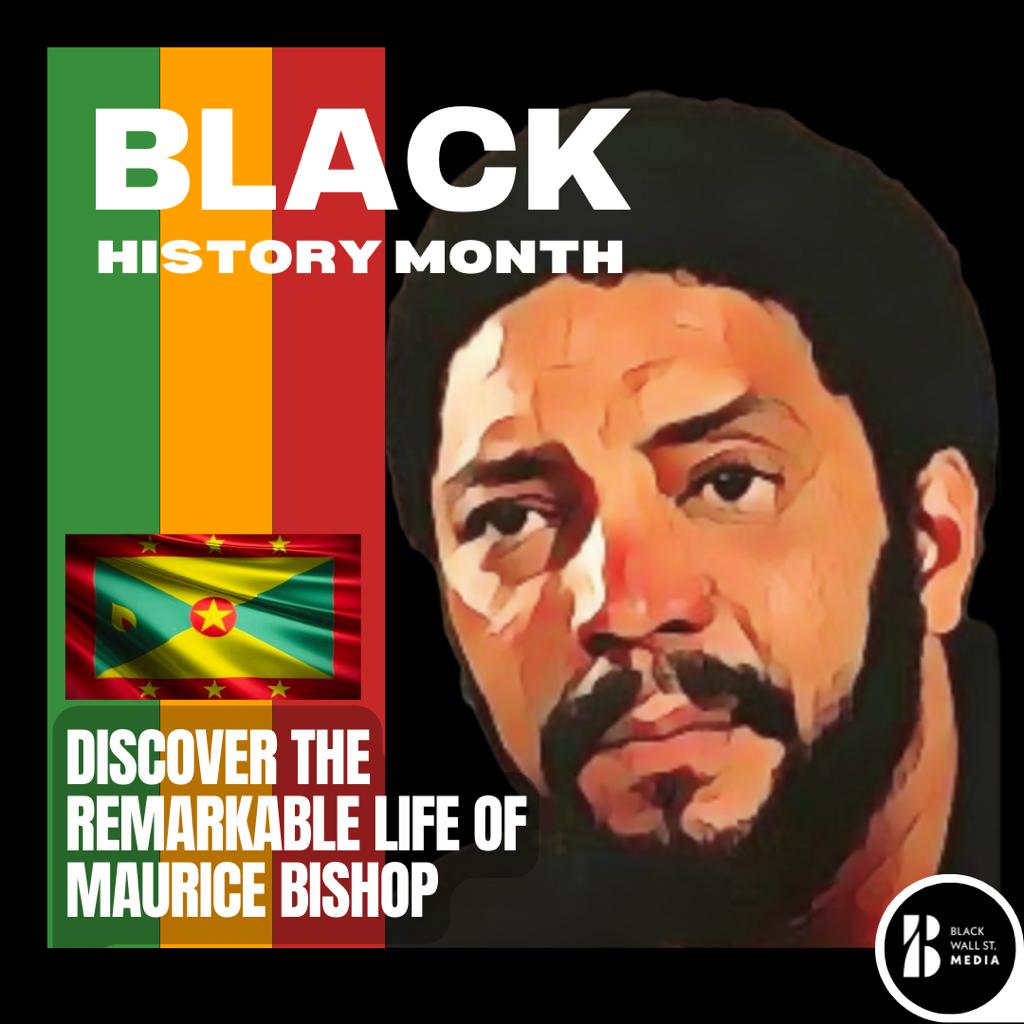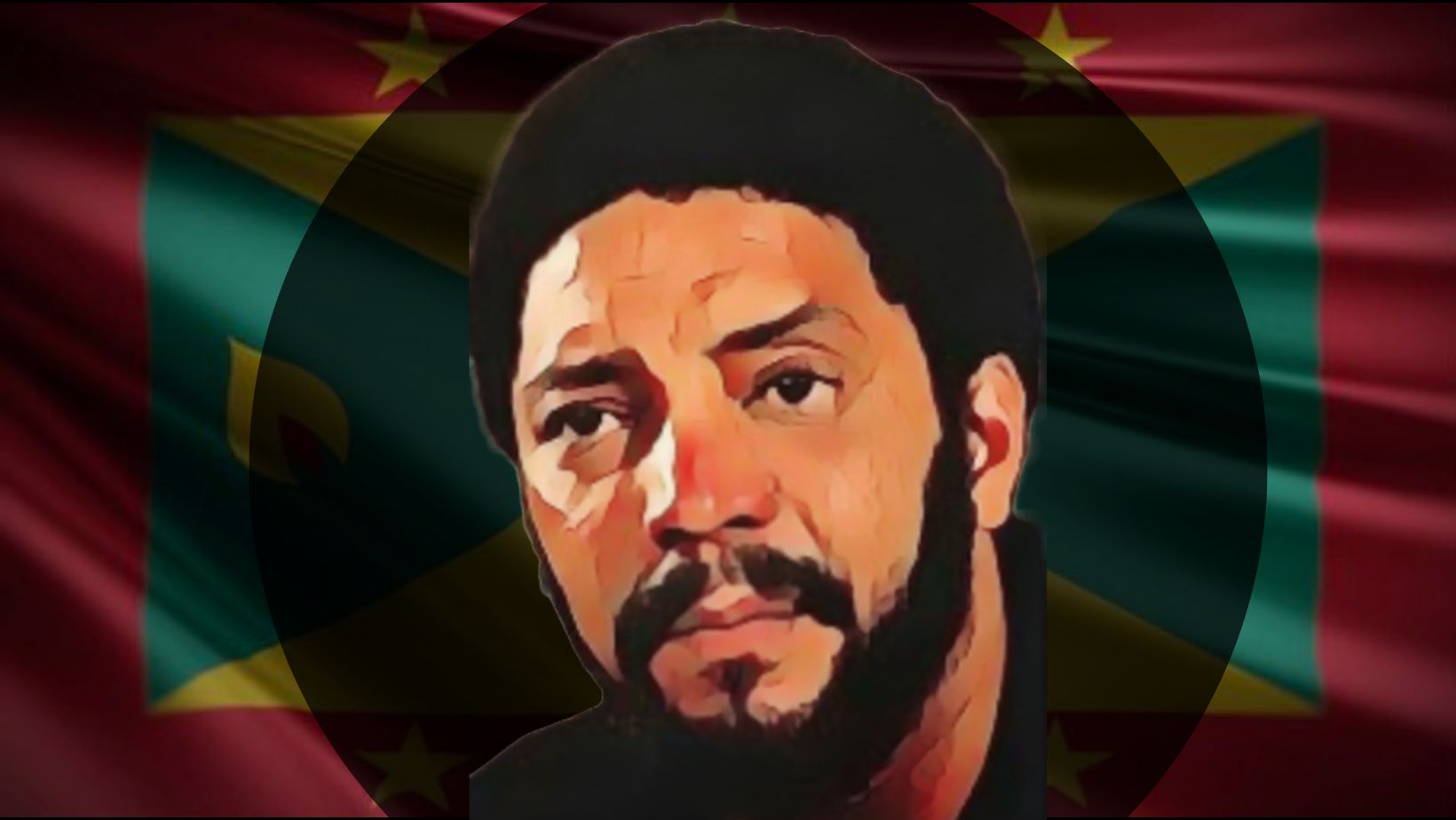HISTORY
Maurice Bishop: The Revolutionary Visionary of Grenada
“Join us in exploring the captivating journey of Maurice Bishop, a prominent figure in Grenadian politics and leader of the Grenadian Revolution. From his early days in the Dutch Caribbean to becoming Prime Minister of Grenada, his story is a complex and debated legacy.”
Black Wall St. MediaContributor

Maurice Bishop, born on May 29, 1944, in the idyllic landscapes of Aruba, was destined to become a pivotal figure in Grenadian and Caribbean history.
His life’s journey would be marked by an unwavering commitment to social justice and the pursuit of a more equitable society. Let’s delve into the remarkable life and political legacy of this influential leader.
A Journey from Aruba to Grenada
Maurice Bishop’s roots trace back to Aruba, a jewel of the Dutch Caribbean. His family’s quest for a better life led them to Grenada when Maurice was just a child.
It was within the vibrant streets of St. George’s, Grenada’s capital, that he found his home, and the world would soon find a visionary leader in the making.
Bishop’s education began in Grenada and later extended to the United Kingdom, where he explored the intricacies of law.
Igniting the Flames of Political Activism
The fervor of political activism ignited within Maurice Bishop during his university years in the UK.
Here, he joined the ranks of left-wing and anti-colonial movements. In 1973, he co-founded the New Jewel Movement (NJM) in Grenada, a socialist organization committed to addressing the deep-rooted social and economic disparities that plagued the country.
The NJM garnered widespread support from diverse sectors of Grenadian society, emerging as a formidable force ready to challenge the existing government.
The Dawn of the Grenadian Revolution
The pivotal moment came on March 13, 1979, when the NJM, under the guidance of Maurice Bishop, successfully staged a coup d’état, toppling the regime of Sir Eric Gairy.
This moment marked the beginning of the Grenadian Revolution, with Bishop assuming the mantle of leadership as the head of the People’s Revolutionary Government (PRG) and the Prime Minister of Grenada.
Under Bishop’s dynamic leadership, the PRG initiated a series of transformative socialist policies. These included land reform, nationalization of key industries, and the establishment of cooperatives, all with the aim of advancing social welfare, education, and healthcare.
Furthermore, Bishop fostered strong international alliances with fellow socialist nations like Cuba and the Soviet Union.
International Relations and Controversies
Bishop’s bold political endeavors resonated across the globe, drawing both support and scrutiny.
The PRG’s socialist alignment and its close association with Cuba aroused the apprehension of Western powers, particularly the United States. Tensions escalated, prompting intense international pressure and scrutiny.
A Tragic End and Ongoing Legacy

Maurice Bishop
The promising era came to an abrupt and tragic halt on October 19, 1983, when an internal power struggle culminated in Maurice Bishop’s arrest.
Mass demonstrations arose in his support, leading to his release. However, just a few days later, on October 25, Bishop, along with several government officials, met a violent end in a coup.
The aftermath of Bishop’s tragic death led to U.S. military intervention in Grenada, known as Operation Urgent Fury. Its goal was to restore order and overthrow the Revolutionary Military Council that had taken power after Bishop’s demise.
Maurice Bishop’s legacy remains a subject of complex debate. Supporters applaud his vision for a fairer society, acknowledging his government’s achievements in social and economic reforms, improved education, healthcare, and regional unity.
Bishop is seen as a symbol of resistance against Western dominance and imperialism.
Conversely, critics raise concerns about his government’s authoritarian practices, including curbs on freedom of speech and political dissent. The handling of internal conflicts under his leadership continues to spark controversy.
Irrespective of these debates, the influence of Maurice Bishop on Grenadian politics and society is undeniable.
The Grenadian Revolution and his leadership heralded a transformative era in the nation’s history.
”Today, Bishop's memory remains an influential force in political discourse, shaping the socio-political landscape of Grenada and beyond.
Black Wall St. MediaContributor







